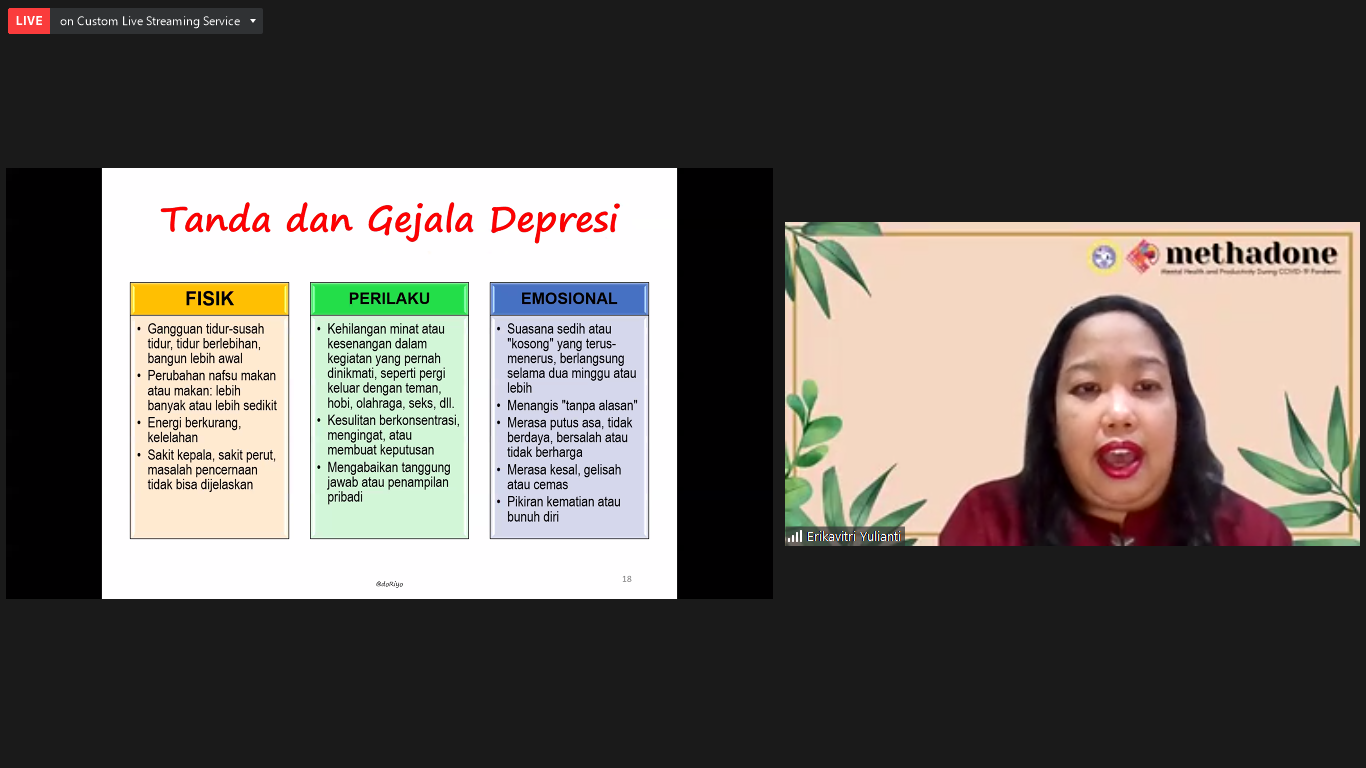UNAIR NEWS – The Covid-19 pandemic has forced us to do all activities from home. Various activities were previously done in public spaces such as working, studying, or attending school, now inevitably have to be done at home to break the chain of Covid-19 spread.
Even though you can only do activities from home, situations often require someone to always be productive and be able to manage time well. As a result, many are trapped in toxic productivity unknowingly.
“Toxic productivity is a desire to always be productive at all times with all efforts and methods and not wanting to stop even though the task has been completed,” explained dr. Erikavitri Yulianti, Sp. KJ (K) at a webinar entitled How to be Productive during a Pandemic held on Sunday, July 11, 2021.
In the webinar held by METHADONE (Mental Health and Productivity during COVID-19 Pandemic), the mental health platform of the Faculty of Psychology Universitas Airlangga (UNAIR), dr. Erikavitri explained that someone who is trapped in toxic productivity will always criticize, demand himself as if they have not done and achieved anything, and forgets their achievements.
According to dr. Erikavitri, toxic productivity has the potential to cause a burnout so that relations with other people will be disrupted.
The consultant for psychiatry explained that the cause of toxic productivity was routines that changed during the Covid-19 pandemic. “Actually we are not comfortable. We are afraid of the uncertainty of the Covid-19 pandemic, so we do a toxic productivity that will give us a ‘feel of security’ to cover our fears,” said dr. Erikavitri.
She said that some of the characteristics of someone experiencing toxic productivity are often feeling guilty and demanding to do more work even though there is nothing else to do. In addition, toxic productivity can also be characterized by fatigue in the morning even though you have slept enough and are not efficient at doing work.
In the webinar, dr. Erikavitri also gives advice so that someone can prevent toxic productivity. One of them is to do good time management and understand each other’s biorhythms.
“There are people who are active after midnight, there are also people who are active after 12 noon. We have to understand ourselves because unproductive tasks will waste time,” she explained.
Furthermore, performing stress management, setting benchmarks for work results’ evaluation, and providing rewards for yourself are also able to prevent someone from toxic productivity. “Don’t forget to keep setting the priority scale, focus on carrying out activities, and stay flexible,” she concluded. (*)
Author: Agnes Ikandani
Editor: Binti Q. Masruroh





